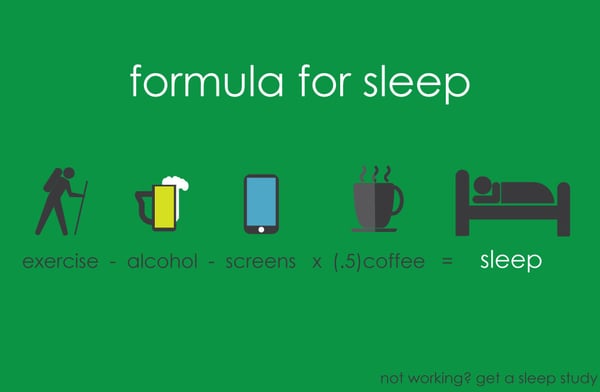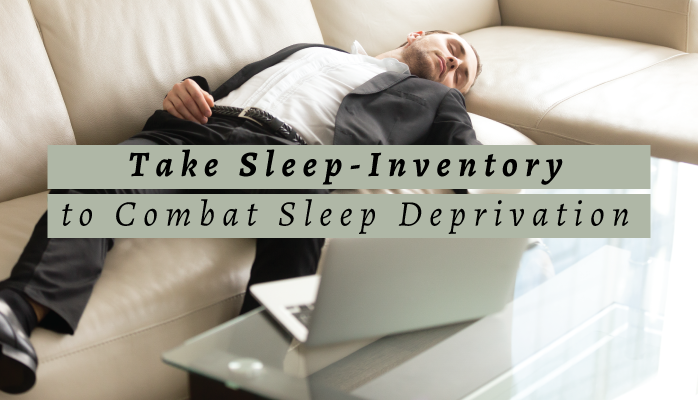Sleep Deprivation
If you have experienced sleep deprivation, you know how brutal it can be. Chronic sleep deprivation is when you are deprived for long periods of time – at least a month or more. This differs from acute sleep deprivation, that is short lived and often has a very specific cause. Chronic sleep deprivation will most certainly make life miserable for you, and can negatively impact those around you as well.
Sleep deprivation impacts your performance and health in all areas of life. Furthermore, it can have serious medical consequences, namely:
- Shortened life expectancy
- Much greater risk of disease and medical problems
- Lower quality of life
To avoid sleep deprivation, you need enough time asleep. It’s not that simple though, there are many factors to consider:
- We need different sleep at different ages
- Our sleep patterns change as we get older
- You are unique with your own unique sleep patterns
- Our unique sleep patterns change in response to things like seasons, our daily activities, life events, etc.
You need to be aware of what your needs are. Sleep deprivation occurs when you are not meeting your sleep needs.
How much sleep do you need:
There are some general guidelines for how much sleep is appropriate. Here are common recommendations for how much sleep you should expect to get based on your age [National Sleep Foundation]:
- <1 year: 12-17 hours per day (more sleep for newborns than toddlers)
- 1-2 years: 11-14 hours
- 3-5 years: 10-13 hours
- 6-13 hours: 9-11 hours
- 14-17 hours: 8-10 hours
- 18-65: 7-9 hours
- 65+: 7-8 hours
Lifestyle Choices and Sleep
Lifestyle is a key factor to consider when talking about sleep. Introducing stimulants like coffee or cigarettes, watching TV late into the night, etc. can really impact your quality and quantity of sleep. Any of the following lifestyle choices will hurt your chances at getting a full night’s rest:
- Drinking too much coffee throughout the day
- Drinking coffee to late in the day
- Drinking alcohol before bed
- Using electronics and screens before bed (blue light inhibits sleep)
- Foregoing sleep in order to play video games, party, etc.
- Keeping a loud, messy, or lit room
- Skimping on good sheets, pillows, or mattress
 Even small changes to habits like reducing alcohol, screen time, and coffee can make huge impacts on sleep
Even small changes to habits like reducing alcohol, screen time, and coffee can make huge impacts on sleep
Treating Sleep Deprivation
Treating sleep deprivation requires consistent, high quality sleep, potentially for a long period of time. Sleep studies show that getting one or two long nights of sleep does not remove the effects of sleep deprivation.
A few things you can do to maximize your sleep potential:
- Create a calm, relaxing bedroom
- Set a bedtime routine
- Do not use screens (TV, laptop, cellphone) in the hour before bed
- Limit coffee and alcohol consumption
- Keep a sleep diary and look for patterns
Take Inventory
Sleep is a complex phenomenon. It’s not just hours of sleep that count, but quality is extremely important as well. Just like we begin noticing our poor posture when our back starts hurting, we take notice of our sleep when we are having extreme difficulty staying awake at work or school. Here are some helpful tips to begin taking inventory of your sleep:
Journal
A sleep journal is an easy way to keep track of sleep. Write down what time you go to bed. Write down anything unique about your bedtime routine. For example, if you decided to drink a glass or two of wine that night, write it down in your journal.
Then, in the morning, write down what time you woke up. Write down how you feel upon waking. Are you feeling energized? Tired? Like you got hit by a bread-truck? Write it down. Then, at the end of the week, look back at your journal and see if there are any patterns that show up.
Observe your Routine
We all have sleep routines that we perform in the evenings. Often it’s just brushing our teeth, putting on pajamas and going to sleep. Take stock of what your typical night looks like before sleep. Is there anything you are doing that can be tweaked to improve your chances of a good night’s sleep. For example, are you reading the news before bed? This may be increasing your stress levels and making it unnecessarily difficult to go to sleep.
Something as simple as reading the news in the morning may improve your sleep quality. Sleep deprivation leaks into every aspect of life, so it’s worth adjusting your routine to combat it.
Observe your sleep environment
Good sleep environments are critical for good sleep. Before bed tonight, take a look at your room. What emotions or perceptions do you get when you glance at your sleep environment? Is your room messy with clothes on the floor? How does it smell? Are there lights from the window? Just take a moment to observe your room, and if there are any aspects that don’t lend themselves to quality sleep, then take note and change them.
Beating sleep deprivation is a game of details. Each detail adds up to either support healthy sleep, or support a state of sleep-deprivation. Knowing a bit more about the causes of sleep deprivation, the risks of sleep deprivation, and some potential improvements that can be made all contribute to a better night’s sleep and a better life.
If you are struggling with getting a good night's sleep, then there maybe something underlying that needs to be checked out. Please click the orange button below to take a free online sleep test and talk with one of our sleep health experts.


